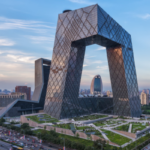

Lelia Lim
Restoring the Balance at Work: The New Reality
The pandemic has disrupted the global economy in ways that are still being assessed. Businesses large and small have been forced to close their doors, lay off staff, and pivot to stay afloat. As the world begins to emerge from under the cloud of COVID-19, we are starting to see the contours of a new reality – one that includes a workforce that is adaptable and resilient, a digital economy that is increasingly dominant, and a need for businesses to focus on restoring balance in the workplace.
How The Pandemic Has Changed Businesses
The pandemic has changed the way businesses look at their workforce. Leaders are now more aware of the importance of providing a balance between work and life to create positive employee experiences that will drive engagement and retention, as well as business performance. Employees who have been able to adapt quickly during this time with minimal disruption may be rewarded for these efforts by reducing travel time or increasing working from home opportunities. This allows employees to focus on other aspects of their lives outside work, such as family responsibilities or personal interests.
A recent PwC study of 32,500 workers in 17 countries stated that 72% of workers expect a mix of remote and in-person working moving forward. In fact, many workers would rather quit their jobs than return to the office full-time.
However, there are also limitations to working remotely, such as a lack of team communication and coordination which can impact productivity. With employees scattered all over the world, some companies will need to address a loss of team spirit and camaraderie, which can lead to a decrease in employee engagement and productivity.
The New Reality of a Digital Economy
Another significant focus for many organisations post-pandemic will be shifting towards or enhancing a digital strategy. The COVID-19 pandemic has accelerated the trend of digitisation as companies look for new ways of doing business, remaining efficient and keeping up with competitors. This is seen most prominently in retail, where e-commerce continues to grow at an alarming rate while physical stores are closing at an unprecedented pace. Ernst & Young’s recent survey found that 78% of leaders plan to change workforce technology tools in response to the pandemic. Therefore, we expect to see more widespread use of technology across all industries to reduce costs, streamline processes and improve communication.
Restoring the Balance at Work
The current generation of workers, millennials, and Gen Z in particular, are all about balance when it comes to their personal and professional lives. Pandemic or not, this trend will continue well into the future, which means businesses have no choice but to adapt with them if they want to stay competitive. This shift towards work-life integration has come as welcome news for many employees who were previously tethered to their desks during traditional office hours only because they felt obligated. Now more than ever before, there’s room for flexibility within an organisation’s structure while still maintaining productivity levels at an acceptable level, thanks largely to advances made over recent years through new technology with software applications like Zoom, Teams and Google Hangouts that allow us all to connect with each other virtually worldwide.
How Can Businesses Adapt?
It’s clear that COVID-19 has impacted business in profound ways. It has highlighted the need for adaptability and resilience, accelerated the shift towards a new digital economy, and accentuated the importance of “Restoring Balance at Work.”. As businesses move forward into the post-pandemic era, the critical challenge will be finding ways to maintain or improve productivity while restoring employee engagement.
Businesses can adapt by providing flexible schedules or remote positions, so employees have more control over their own time. They should also invest in the right technology to support a digital workforce which will help foster innovation as well as improve efficiency across departments within an organisation. In addition, businesses need to ensure that they have effective communication channels for both internal teams and external customers alike. Finally, they must keep up-to-date with what’s happening around them while staying relevant themselves – if a business doesn’t evolve, it won’t survive long term no matter what the external environment throws at it.
Let us know how Lim-Loges & Masters can help your organisation thrive post-pandemic through our expert Disruption Management, Executive Search and Transition Management services.
About Lim-Loges & Masters
Lim-Loges & Masters is an award-winning HR consulting company with specialists offering expertise in Executive Search, Transition Management and Disruption Management across Asia Pacific. LLM works with multinational companies seeking to transform their organisations through their people. Focusing on Asia, the LLM team helps companies minimise risks and manage talent, through a deep understanding of Asia Pacific’s business climate. LLM has a presence in China, Hong Kong, India and its regional HQ, Singapore, with international affiliates in the UK.







